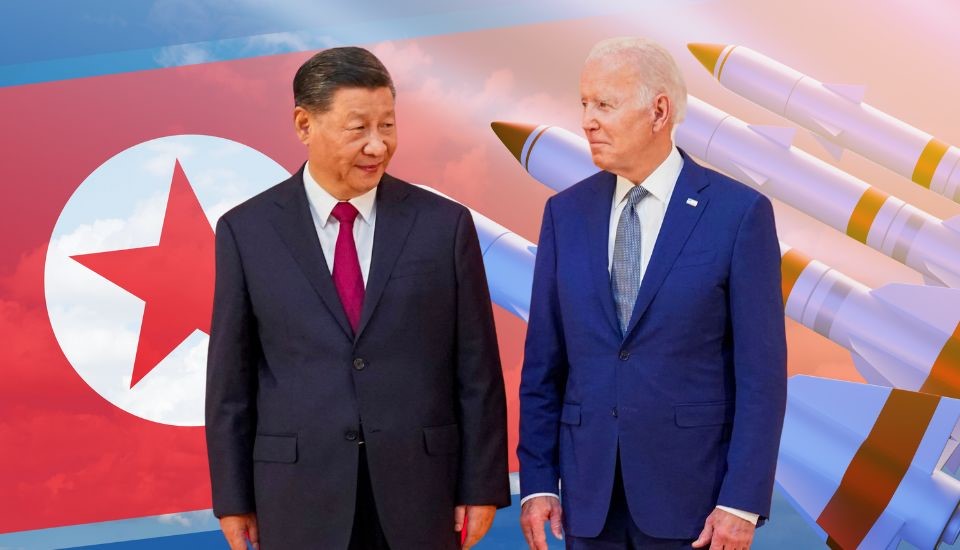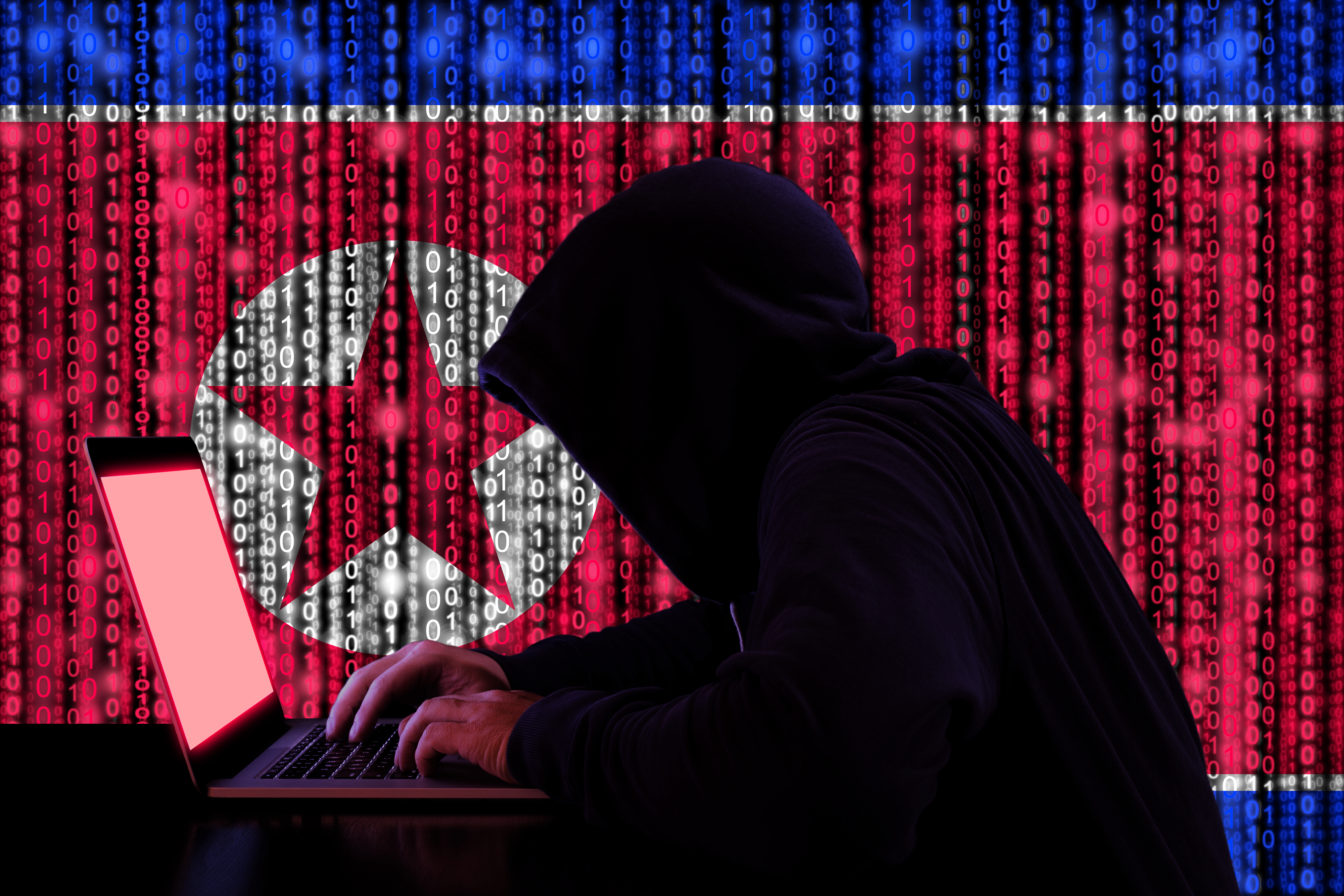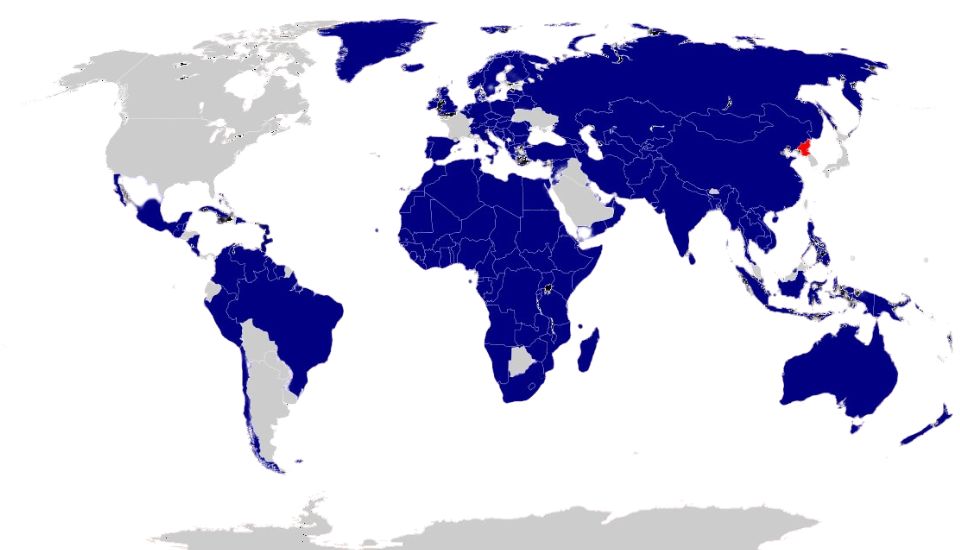
DPRK Nuclear Issue after APEC U.S.-China Summit
Commentary | November 30, 2023
Chaesung Chun
Chair, EAI National Security Studies Center; Professor, Seoul National University
Yang Gyu Kim
Executive Director, EAI
Chaesung Chun (Chair, EAI National Security Research Center; Professor, Seoul National University) and Yang Gyu Kim (Executive Director, EAI) assess that while the recent U.S.-China bilateral summit during the APEC Leaders’ Week showed that strategic competition between the two countries will persist, the inauguration of a nuclear arms control dialogue marks a positive step for managing North Korean nuclear crisis. Highlighting that the core issue remains whether or not the DPRK nuclear weapons program can be adequately addressed during the U.S.-China arms control negotiation, the authors suggest that now is an essential time for South Korea to proactively counter the DPRK’s “new Cold War” strategy and reinstate the goal of North Korea’s complete denuclearization.
Shifting U.S.-China Relations: From Bali to San Francisco
One year ago, at the Bali summit, the leaders of the U.S. and China pledged to pursue responsible competition by establishing guardrails to prevent their strategic competition from escalating into military confrontation. The November 15 bilateral summit held during the Asia-Pacific Economic Cooperation (APEC) Leaders’ Week 2023 in San Francisco served as an interim evaluation of the two countries’ pledge in November 2022 to seek cooperation while maintaining high-level talks.
Over the past year, the U.S. and China have maintained diverse channels of communication through the exchange of high-level personnel from their respective government branches. White House National Security Advisor Jake Sullivan met with Chinese Communist Party Central Committee Member and Foreign Minister Wang Yi in Vienna last May, which was followed by meetings in Malta in September and Washington, D.C. in October. Starting with Secretary of State Antony Blinken in June, four ministerial-level officials from the U.S. visited Beijing successively, including Secretary of the Treasury Janet Yellen, Special Presidential Envoy for Climate John Kerry, and U.S. Secretary of Commerce Gina Raimondo. Just before the APEC Summit, Yellen met with Chinese Vice Premier He Lifeng for an additional round of coordination. In essence, the U.S. and China seem to have been exploring potential areas of cooperation, making efforts to prevent their difference in views from evolving into all-out confrontation.
The U.S. characterizes its relations with China as a “strategic competition.” It acknowledges that achieving fundamental cooperation remains a challenge due to collision of core strategic interests, disparities in political, social, and economic systems, as well as differences in the rules and norms that guide their respective policy directions. Nevertheless, the U.S. recognizes that China’s growth offers substantial opportunities not only to itself but also to the international community, and that China is an important partner in jointly addressing transnational threats.
The United States’ strategy towards the PRC is threefold: (1) maintaining substantial military and security dominance over China, (2) engaging in competition through export controls and investment restrictions in cutting-edge technology, which will have a decisive influence on the future military balance, and (3) sustaining interdependence within the broader economic context, taking into account the interests of U.S. businesses and allies.
The U.S. perceives that it has gradually gained the upper hand against China over the past year. It assesses that China’s economic growth rate is declining, not only because of relatively short-term challenges such as COVID-19 pandemic or U.S. export controls against China, but also due to fundamental problems in the Chinese economy. Some critical structural flaws in the Chinese economy that U.S. sees is the lack of opportunities for qualitative growth and innovation, which has led to reduced predictability in the economy and an increased influence of political calculations over market logic.
Under these circumstances, President Biden views the Chinese economy as a time bomb that could explode at any moment. Meanwhile, the recent spy balloon incident has exposed a deficiency in Chinese political system, demonstrating that even a “dictator” cannot effectively manage internal affairs.
On an international level, initiatives pursued by China—such as the Belt and Road initiative, Global Security Initiative, Global Development Initiative, and the Global Civilization Initiative—appear to have failed to elicit a particularly positive response from the international community. Instead, the U.S. perceives China’s ideologically driven foreign policy, such as its Wolf Warrior diplomacy, as undermining the country’s competitiveness and appeal. Therefore, based on the assessment that it maintains a certain level of superiority over China, the U.S. has decided to continue strategic competition while focusing on preventing its escalation into confrontations.
Results of the APEC Summit and the Future of U.S.-China Relations
It is necessary to reflect on the recent U.S.-China summit in this context. Following the U.S.-China Summit at APEC, President Biden described his conversation with President Xi Jinping as “candid and constructive,” noting that despite differences in their opinions, the two countries “manage competition responsibly” and take into account the positions of the neighboring countries (White House 2023).
According to the statements made by Washington, the U.S. warned against China’s military actions in and around Taiwan, its attempts to change the status quo by force, human rights abuses in Tibet, Hong Kong, and Xinjiang. Biden further raised the issue of the South China Sea, while emphasizing freedom of navigation and aviation. The U.S. has also announced that it mentioned the complete denuclearization of North Korea.
Meanwhile, Foreign Minister Wang Yi’s briefing on the summit only emphasized issues such as the resumption of high-level dialogues, discussions on climate change and artificial intelligence (AI) governance, and military communications. He generally refrained from touching on matters pertaining to conflicting interests, including China’s position on North Korea’s denuclearization. Nevertheless, he reaffirmed that Taiwan issue constitutes its utmost core national interest, and therefore that it opposes any action that encourages Taiwan’s independence or the provision of military support for Taiwan. He also added that its attempts to “deprive the Chinese people of their right to development” in the field of cutting-edge technologies were unacceptable (PRC Ministry of Foreign Affairs 2023c).
Nonetheless, it is true that the U.S.-China Summit has yielded some meaningful results. The two leaders agreed to ban the distribution of materials used for fentanyl production, to promote dialogue for U.S.-China defense policy and maritime security, and to maintain high-level military consultations to prevent crises.
The Chinese side emphasizes its basic position that the U.S.-China relationship should be based on the three principles of mutual respect, peaceful coexistence, and win-win cooperation. During his speech at the APEC CEO Summit, President Xi Jinping stressed the necessity of preventing the U.S.-China relationship from devolving into a “camp-based competition” and emphasized the need to avoid the onset of a “new cold war” (PRC Ministry of Foreign Affairs 2023d). He emphasized the importance of maintaining an open and inclusive international order, upholding the principles of the United Nations Charter, and reinstating multilateralism as a means to overcome protectionism. China proposes that its economic growth greatly benefits the international community, highlights its commitment to peaceful economic development, and aspires to achieve open modernization.
In effect, these discussions suggest that China also views U.S.-China relations as a long-term competition, and that China is sending a message to the international community about its development strategy at the APEC Leaders’ Meeting to revive its struggling economy.
While China’s official discourse at APEC warns against confrontation and conflict and calls for coexistence and co-prosperity, it does not explicitly use the U.S.-defined term “competition.” This indicates that even though China does not officially endorse the concept of competition, it acknowledges the de facto competitive nature of the U.S.-China relationship. Consequently, China is exploring various paths for development while managing the competitive relationship.
In short, the recent bilateral summit can be viewed as a tentative compromise based on the shared interest of preventing military confrontation. While both leaders have identified the areas of cooperation and laid the groundwork for collaboration, the primary emphasis has been on establishing communication channels, avoiding misunderstandings, fostering an accurate understanding of each other’s intentions, and promoting transparency.
The DPRK Nuclear Problem after the APEC Summit
Looking forward, both the U.S. and China have pledged to continue high-level dialogues and hence are likely to continue exploring further areas of cooperation. In particular, nuclear arms control and the regulation of AI will become critical agenda for the future. At a time when China is rapidly building up its nuclear arsenal, nuclear arms control between the U.S. and China becomes a vital priority. It is highly desirable that the recent summit will become the starting point for discussions between the U.S. and China on AI-based nuclear strategy, which seeks to automate the process of operating nuclear weapons. As the automation of the command-and-control system for nuclear weapons may lead to an unexpected escalation to nuclear war, it is a positive development that the importance of proactively managing the introduction of AI into nuclear operating system has been recognized.
However, given the stark contrast in how the two countries have summarized the outcomes of the U.S.-China deputy minister-level arms control dialogue held on November 6, U.S.-China competition in the nuclear area is likely to continue. The U.S. assesses the two countries’ discussions on arms control and non-proliferation as an effort to “maintain open lines of communication and responsibly manage the U.S.-PRC relationship.” Furthermore, Assistant Secretary of State for the Bureau of Arms Control, Verification, and Compliance Mallory Stewart has reportedly emphasized the “importance of increased PRC nuclear transparency and substantive engagement on practical measures to manage and reduce strategic risks across […] nuclear and outer space” (U.S. State Department 2023).
On the other hand, the Chinese side has stated that the main agendas were the “Treaty on the Non-Proliferation of Nuclear Weapons, cooperation among the five nuclear-weapon states, nuclear security, non-proliferation and export control, compliance with the Biological Weapons Convention and the Chemical Weapons Convention, and outer space security and regular arms control” (PRC Ministry of Foreign Affairs 2023b). It has also explained how the two countries need to engage in dialogue on the basis of mutual respect of each other’s sovereignty and security, while staying committed the Global Security Initiative’s principles of “common, inclusive, cooperative, and sustainable security” in order to safeguard the international arms control system (PRC Ministry of Foreign Affairs 2023a).
To summarize, while the U.S. emphasizes “strategic transparency” and focuses on “responsible” and “managed” competition, China puts “mutual respect” at the forefront, responding to U.S. with the claim on “sovereign rights.” Therefore, it is unlikely that China will seek negotiations for nuclear arms control that limits the development of its nuclear arsenal before its nuclear capabilities reach the level of the U.S. and Russia.
Nevertheless, it is commendable that a dialogue has begun between the two on nuclear arms control. The question is whether the North Korean nuclear problem can be included in the discussions. China tends to blame North Korea’s nuclear advancement on the U.S.’s lukewarm approach to denuclearization negotiations and on the strengthening of U.S.-ROK-Japan security cooperation. However, North Korea has been actively adopting and promoting the “New Cold War narrative,” a discourse that even China disavows. DPRK seeks to enhance its economic and diplomatic position through by strengthening ties with Russia and pursuing arms export to other parts of the world experiencing conflicts and crises.
The advancement of North Korea’s nuclear capabilities does not align with either U.S. or China’s national interests. Because North Korea’s nuclear threat only encourages tighter U.S.-ROK-Japan and Japan-ROK cooperation, this further entrenches the bloc mentality and Cold War structure in Northeast Asia that China so vehemently condemns. Therefore, in the context of the rapidly changing geopolitical dynamics, the APEC U.S.-China summit has demonstrated that South Korea must play a more “pivotal” role in countering North Korea’s foreign policy direction, which seeks to reestablish Cold War-type confrontation in the region, and reaffirming the goal of North Korea’s denuclearization.
References
Ministry of Foreign Affairs of the People’s Republic of China. 2023a. “The Global Security Initiative Concept Paper.” February 21. https://www.fmprc.gov.cn/mfa_eng/wjbxw/202302/t20230221_11028348.html
__________. 2023b. “China and the United States Hold Consultations on Arms Control and Non-proliferation.” November 8. https://www.fmprc.gov.cn/mfa_eng/wjbxw/202311/t20231109_11176580.html
__________. 2023c. “Wang Yi Speaks to the Press about the Summit Meeting Between Chinese and U.S. Presidents in San Francisco.” November 16. https://www.fmprc.gov.cn/mfa_eng/zxxx_662805/202311/t20231117_11182054.html
__________. 2023d. “Meeting Challenges with Unity of Purpose To Write a New Chapter for Asia-Pacific Cooperation.” November 17. https://www.fmprc.gov.cn/mfa_eng/zxxx_662805/202311/t20231117_11182049.html
U.S. Department of State. 2023. “Assistant Secretary Mallory Stewart’s Meeting with the People’s Republic of China’s (PRC) Ministry of Foreign Affairs Director-General of Arms Control Sun Xiaobo.” November 7. https://www.state.gov/assistant-secretary-mallory-stewarts-meeting-with-the-peoples-republic-of-chinas-prc-ministry-of-foreign-affairs-director-general-of-arms-control-sun-xiaobo/
White House. 2023. “Readout of President Joe Biden’s Meeting with President Xi Jinping of the People’s Republic of China.” November 15. https://www.whitehouse.gov/briefing-room/statements-releases/2023/11/15/readout-of-president-joe-bidens-meeting-with-president-xi-jinping-of-the-peoples-republic-of-china-2/
■ Chaesung Chun is the Chair of the National Security Research Center at the East Asia Institute (EAI) and a Professor at the Department of Political Science and International Relations at Seoul National University.
■ Yang-Gyu Kim is the Executive Director of the EAI and a Lecturer at the Department of Political Science and International Relations at Seoul National University.
■ Typeset by Jisoo Park, Research Associate
For inquiries: 02 2277 1683 (ext. 208) | jspark@eai.or.kr
Security and External Relations

A Way forward to Counter North Korea’s Evolving Cyber Threats
Bora Park | 27.November.2023

Shaping the Conditions for Nuclear Futility
Dong-Yub Kim | 20.November.2023

Isolation or Integration? North Korea’s Diplomatic Network
Antoine Bondaz | 13.November.2023
LIST